Donald Trump has always been a polarizing figure. While there are many reasons for this, one is the boasting and actions he takes in pursuit of being seen as “a winner,” (remember his many remarks disparaging “losers,” for reference) or his personal definition of “the greatest American president in U.S. history.”
In his endless quest for adulation and glory, this means we may see Trump try something “huge” during his second term as he attempts to secure his place in history as a transformative president who achieved something “tremendous” on the global stage.
And that something “tremendous” may very well be inspired by Ronald Reagan, who is often credited with engineering the collapse of the Soviet Union through a careful combination of economic pressure, military expansion, and ideological confrontation.
As a result, Reagan is and will be forever known as the American president who defeated the USSR and ended the Cold War.
In other words, is it possible that Trump, against all expectations, could follow a strategy similar to Reagan’s and capitalize on Russia’s vulnerabilities stemming from its war in Ukraine to force the collapse of the Russian Federation at large?
Before we answer that question, let’s take a brief look at how Reagan achieved what he did.

The Reagan Playbook: Military and Economic Pressure
Ronald Reagan’s presidency marked a turning point in the Cold War. His administration ramped up military spending, expanded NATO’s influence, and supported anti-Soviet insurgencies in Afghanistan and elsewhere.
At the same time, Reagan weaponized America’s economic advantages—including technological superiority and energy production—to exploit the Soviet Union’s inherent weaknesses.
Reagan’s ability to outspend and outmaneuver the Soviet Union was decisive. His policies intensified the economic strain on a system already teetering on the brink of collapse.
The Soviet Union’s attempt to keep pace with the U.S. military buildup and maintain control over its satellite states ultimately proved unsustainable and contributed to its collapse
So, how does “The Reagan Playbook” potentially fit into Trump’s presidency and modern-day Russia?
Russia’s Current Weaknesses
Modern Russia is certainly not the Soviet Union. However, it does face its own set of challenges that a determined U.S. president—such as Trump—could exploit.
For example, the war in Ukraine has exposed significant weaknesses in Russia’s military, eroded its international standing, and placed immense strain on its economy. Beyond this, western sanctions have limited Russia’s access to critical technologies and the flight of capital and talent has further weakened its economic prospects.
Finally, the war has exacerbated internal tensions within Russia’s vast and diverse federation. Regional disparities, ethnic divisions, and dissatisfaction among the population could be amplified by external military and economic pressure.
Trump’s Opportunity in Russia
Donald Trump’s relationship with Russia has long been the subject of intense scrutiny and controversy, with many critics accusing him of being soft on Moscow.
However, a second Trump presidency could see a radical shift in his approach as he aims to secure a historical and geopolitical legacy comparable to Reagan’s.
Trump’s transactional approach to politics and desire for grand achievements could lead him to adopt a hardline stance against Russia not dissimilar to Reagan. While many believe Trump to be a proponent of cutting aid to Ukraine, he may surprise us by doing the exact opposite: dramatically increasing military aid to Ukraine and leveraging NATO’s collective strength so as to further weaken Russia’s position in the war.
Simultaneously, he could intensify economic sanctions, target Russia’s energy exports, and support dissident movements within Russia to destabilize Vladimir Putin’s regime.
A High-Stakes Gamble
Such a strategy would be fraught with risks. Escalating the conflict with Russia could provoke unpredictable responses including cyberattacks, hybrid warfare, or even the use of tactical nuclear weapons.
Additionally, pushing Russia toward collapse might create a power vacuum that leads to chaos and instability in a region with a vast nuclear arsenal.
Trump would likely also face domestic and international opposition. Critics might accuse him of warmongering or abandoning his isolationist rhetoric. Therefore, Trump would have to partake in some deft political maneuvering and clear articulation of the stakes to convince g certain segments of the American public and Congress to support an aggressive anti-Russia strategy.
However, it’s important to note that, as of December 2024, around half of Americans still support U.S. assistance to Ukraine, and an even larger majority of foreign policy experts across party lines favor continued economic and military aid to Ukraine. These numbers could potentially make Trump’s pursuit of “eternal glory” more achievable.
Legacy vs. Pragmatism
If Trump were to pursue this bold course of action, he would be rewriting his own political narrative. Instead of being remembered as a president accused of cozying up to Moscow, he couldgo down in history as the leader who decisively ended Russia’s threat to the West.
Moreover, the collapse of the Russian Federation would send shockwaves across the globe, weakening key U.S. adversaries, including the so-called “Axis of Evil’—China, Iran, Russia itself, and North Korea. It would also diminish anti-West sentiment in Asia, Africa, and Latin America as the Russian anti-U.S. propaganda machine would effectively cease to exist.
While comparisons to Reagan would be inevitable, Trump’s approach would reflect the realities of a new era. The tools of economic warfare, cyber capabilities, and alliances like NATO are far more sophisticated today than during the Cold War.
The question is whether Trump would have the vision and discipline to wield these tools effectively—or whether his instincts and impulses would undermine such an ambitious strategy.
In the end, emulating Reagan’s success during the Cold War requires more than just bold rhetoric. It demands a clear understanding of geopolitical dynamics, careful coordination with allies, and the ability to outmaneuver a cunning adversary.
If Trump can rise to the occasion, he might just achieve what Reagan did: the collapse of a rival superpower and a defining place in the annals of American history.


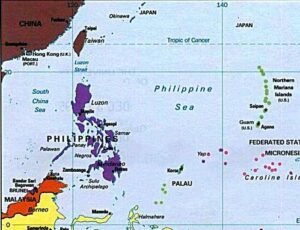
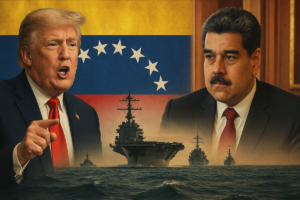
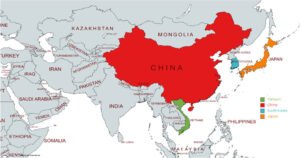
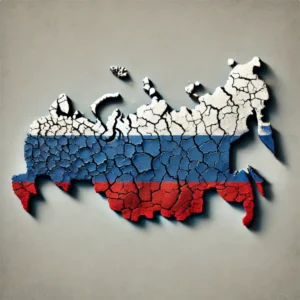
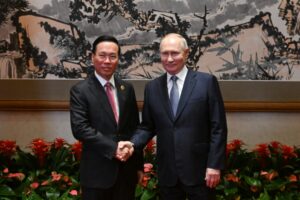

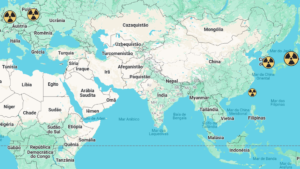
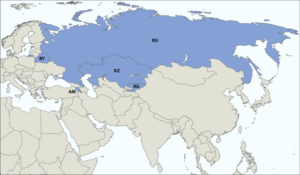
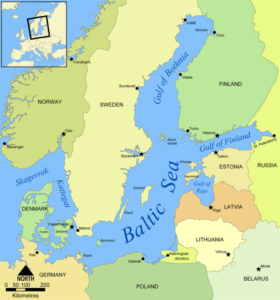

“If Trump can rise to the occasion…” That’s really not something you want to gamble the entire premise of your article on; Trump never fails to disappoint by NOT rising to the occasion. At least put that sentence first as a caveat to readers.
Thank you for your comment. In hindsight, after what happened with Zelenskyy at the White House and the aid cuts to Ukraine, you were absolutely right. Unfortunately, Trump has a way of living up to expectations—just not in a good way. He consistently follows through on his promises, but rarely in a way that brings positive surprises. Sadly, hope is not a reliable strategy with this administration, and even the financial markets are beginning to come to the same realization. Again, we appreciate your insight.